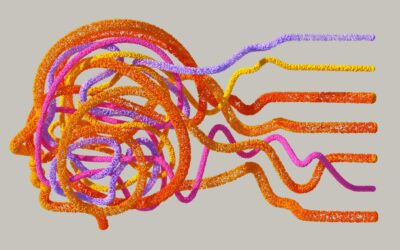Over the past two years, one trend has emerged as a transformative force in the modern workplace: the rise of the hybrid workforce. Millions of people and organizations around the world are now splitting their working hours between their home and office. As we venture beyond the challenges of the past, it’s clear that managing such a workforce demands a new set of skills and strategies.
1. Mastering Digital Technology
The hybrid workforce relies on digital tools and technologies to collaborate and communicate. Research by McKinsey highlights that leaders who are adept at utilizing digital platforms report higher levels of employee engagement and productivity. Leadership training should encompass understanding various collaboration tools, and techniques for maintaining virtual team dynamics in order to enhance operational effectiveness, speed, teamwork, and the quality of service provided to clients.
2. Effective Virtual Communication
Clear communication becomes even more pivotal when team members are geographically dispersed. It is important to adopt best practices for managing virtual communications including techniques for articulating expectations, being an active listener, providing regular feedback, scheduling team check-ins, avoiding micromanaging, setting clear agendas for all meetings, being mindful of tone, facial expressions, and body language during video meetings, using cameras, and keeping everyone engaged and aligned.
3. Flexibility and Empathy
The hybrid model blurs the lines between professional and personal lives. To accommodate diverse schedules and individual circumstances, it’s important for leaders to exhibit empathy and flexibility. A recent survey conducted by Deloitte found that organizations emphasizing empathy and work-life balance experienced higher levels of employee satisfaction, a deeper sense of belonging, and feeling appreciated. When leaders focus on nurturing emotional intelligence, use active listening, and employ strategies to support employees’ well-being, the outcome is a happier and more productive workforce.
4. Outcome-Oriented Performance Management
Traditional methods of monitoring employee performance may fall short in a hybrid workforce. Adopting outcome-oriented performance management can help employees thrive in this new work environment by setting clear performance expectations, defining measurable outcomes, empowering people to achieve their goals without micromanaging, and providing regular, constructive feedback.
5. Conflict Resolution Across Boundaries
Misunderstandings and conflicts are inevitable, especially in a hybrid workforce where face-to-face interactions are limited. Conflicts that arise can be related to tasks, ideas, work styles, personalities, management styles, and discrimination. Minimizing the effects of conflict can be achieved by fostering open dialogues, having regular meetings, making it safe to discuss issues before they get out of hand, asking for input about problems, developing best practices for email and chat etiquette, and asking for confirmation that conflicts have been resolved.
6. Building a Collaborative Culture
Cultivating a sense of unity and teamwork is a formidable challenge in a hybrid setting. The role of leadership in building a collaborative culture is to develop methods to promote team cohesion, facilitate cross-functional collaborations, create opportunities for virtual water-cooler conversations, and nurture a shared sense of purpose.
The hybrid workforce landscape is dynamic and is reshaping the way organizations operate. This requires leaders to adapt swiftly, embrace change, navigate uncertainty, inspire their teams to innovate, and foster a culture of continuous learning. By honing digital proficiency, communication skills, empathy, performance management techniques, inclusivity, conflict resolution abilities, and collaborative approaches, leaders can effectively support their teams.
As we embrace this new era of work, investing in comprehensive leadership training is not just a choice but a necessity for success in a world where adaptation and transformation are paramount.
Click here to learn more about training programs from Blue Fjord Leaders including the best-selling 60-Day Leadership Challenge.






0 Comments